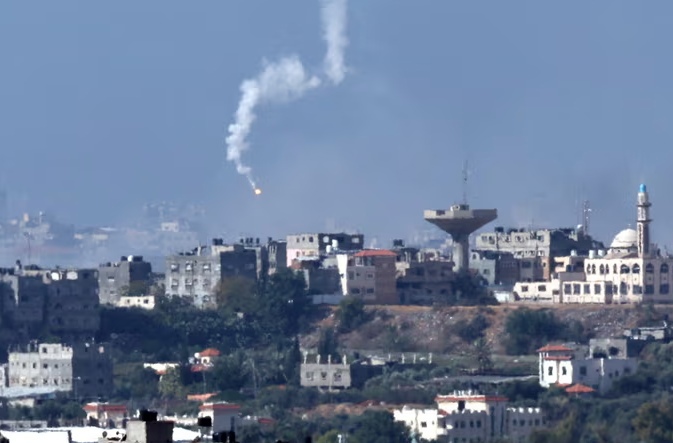China, Iran and several Arab countries have condemned the Israeli minister’s words that a nuclear strike on the Gaza Strip is an option for war between Hamas and Israel.
On Monday, at the opening of a UN conference aimed at establishing a nuclear-free zone in the Middle East, many ambassadors condemned and criticised remarks by Israel’s Heritage Minister Amihai Eliyahu, who later called his remarks in a Sunday radio interview “metaphorical”. Israeli Prime Minister Benjamin Netanyahu quickly disavowed the remarks and suspended him from cabinet meetings.
Israel has made no comment on its nuclear capability. Israel is believed to have nuclear weapons and a former employee of its nuclear reactor served 18 years in an Israeli prison for passing details and photographs of Israel’s alleged nuclear arsenal programme to a British newspaper in 1986.
Geng Shuang, China’s deputy ambassador to the UN, said he considered the statements “extremely irresponsible and alarming” and subject to universal condemnation. He called on Israeli officials to retract the statement and join the Nuclear Non-Proliferation Treaty, considered the cornerstone of nuclear disarmament, as a non-nuclear-weapon state “as soon as possible.”
Geng said China was ready to join other countries to “give new impetus” to the establishment of a nuclear-weapon-free zone in the Middle East. He said this was becoming increasingly urgent due to the situation in the region. UN disarmament chief Izumi Nakamitsu, who opened the fourth conference on Monday, did not mention Israel. However, she said:
“Any threat to use nuclear weapons is inadmissible.”
Nakamitsu again emphasised the “urgency … of establishing a Middle East zone free of nuclear weapons and other weapons of mass destruction,” noting that “equanimity and diplomatic efforts” are needed to achieve peace between Israel and the Palestinians on the basis of the two-state solution.
Oman’s UN Ambassador Mohammed Al-Hassan, speaking on behalf of the Gulf Cooperation Council, said the threat to use nuclear weapons in Gaza “confirms the extremes and brutality of the Israeli occupation against the Palestinian people” and its “disregard for the lives of innocent people.” He called on the UN Security Council and the IAEA to take decisive action on the issue.
Lebanon’s Charge d’Affaires Hadi Hashem also condemned the Israeli Heritage Minister’s remarks, stressing that “this self-acceptance of the existence of nuclear weapons and the threat of their use by the country’s officials poses a serious threat to both regional and international peace and security.” He called on Israel to stop “such rhetoric or posturing” and to accede to the Treaty on the Non-Proliferation of Nuclear Weapons as a non-nuclear-weapon State.
Iran’s ambassador to the UN, Amir Iravani, told a conference that nuclear threats against Palestinians by senior Israeli officials emphasised Israel’s “pride” in having the weapons in its hands. He noted:
“The secrecy surrounding Israel’s nuclear capabilities poses a significant threat to regional stability. In these critical times, the imperative to establish such a zone in the Middle East has never been more urgent.”
Israel made no statement on the issue Monday, but Netanyahu said the main threat to his country remains the possibility of a nuclear-armed Iran and he is prepared to prevent it.
Efforts to establish a nuclear-weapon-free zone began as early as the 1960s. In 1995, parties to the Nuclear Non-Proliferation Treaty called for it, and in 1998 the UN General Assembly adopted a resolution asking countries to contribute to its establishment. The first UN conference aimed at establishing the zone was held in November 2019.
On Monday, Russia’s ambassador to the IAEA and other Vienna-based UN organisations, Mikhail Ulyanov, told delegates that amid a new escalation of violence in the Middle East, the creation of a nuclear-free zone in the region was “more urgent than ever”.
